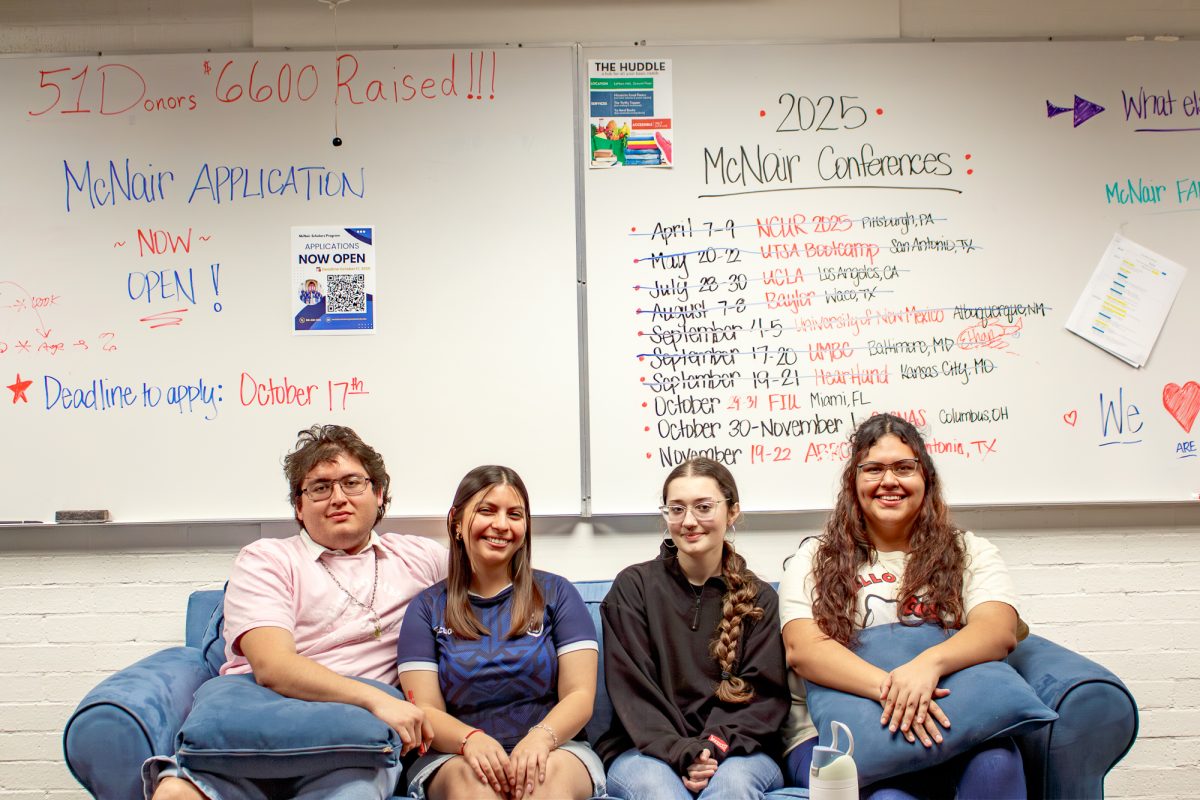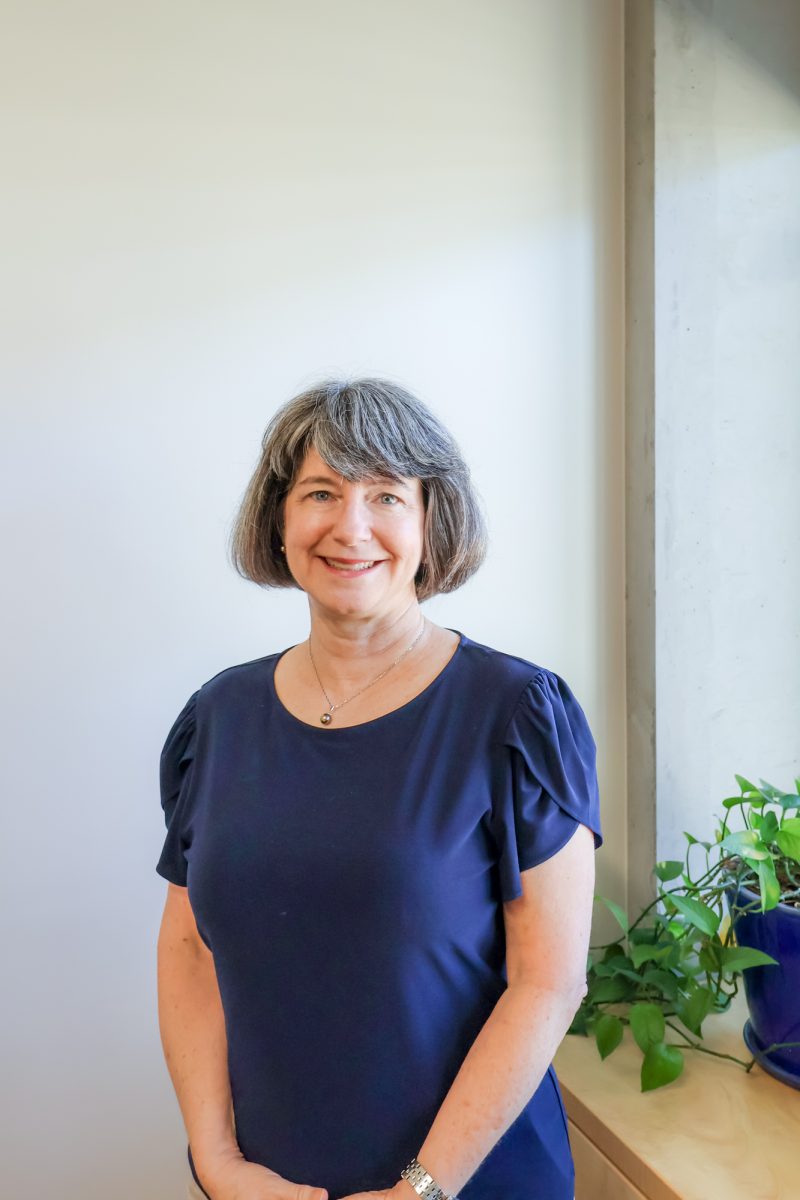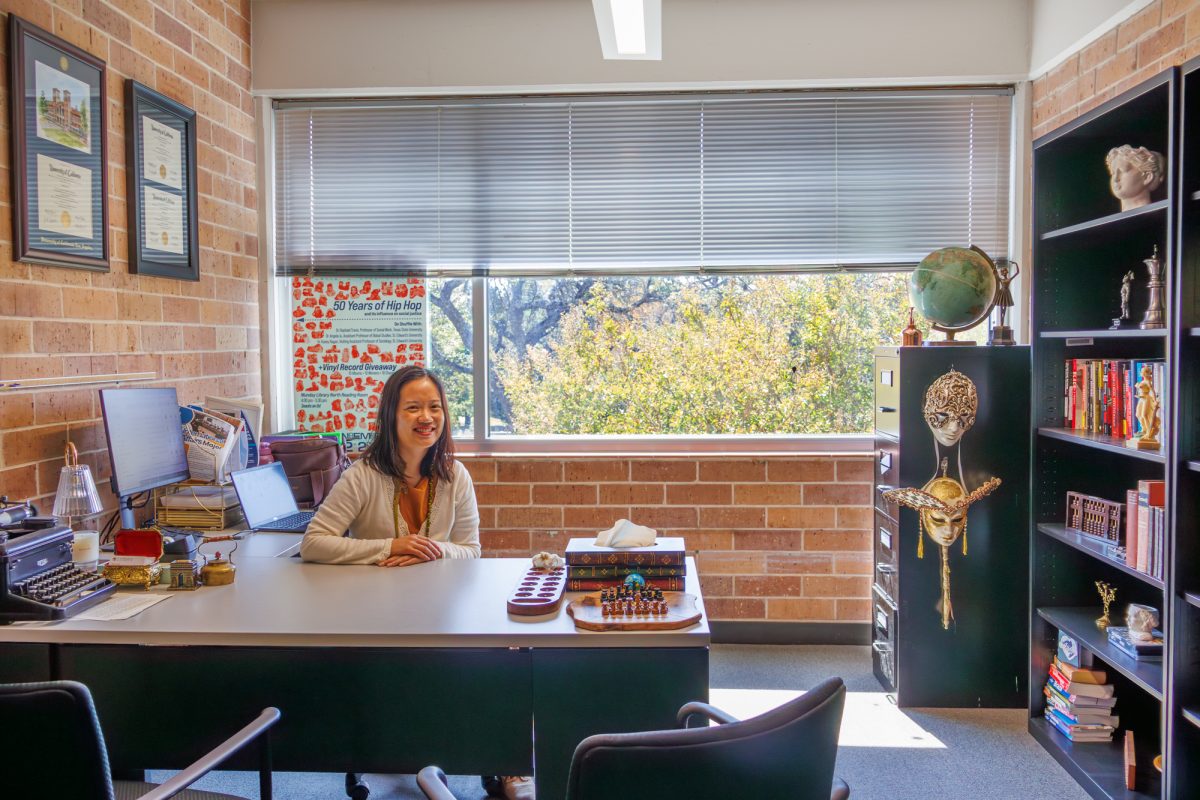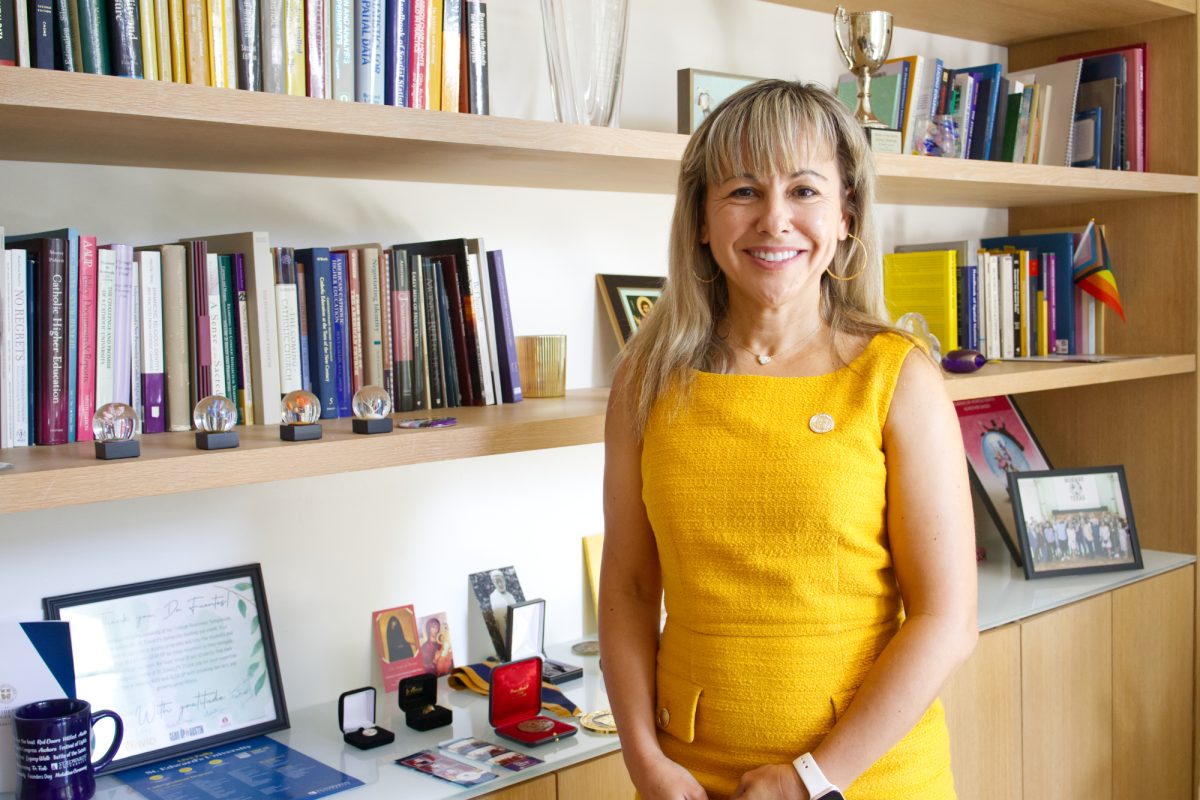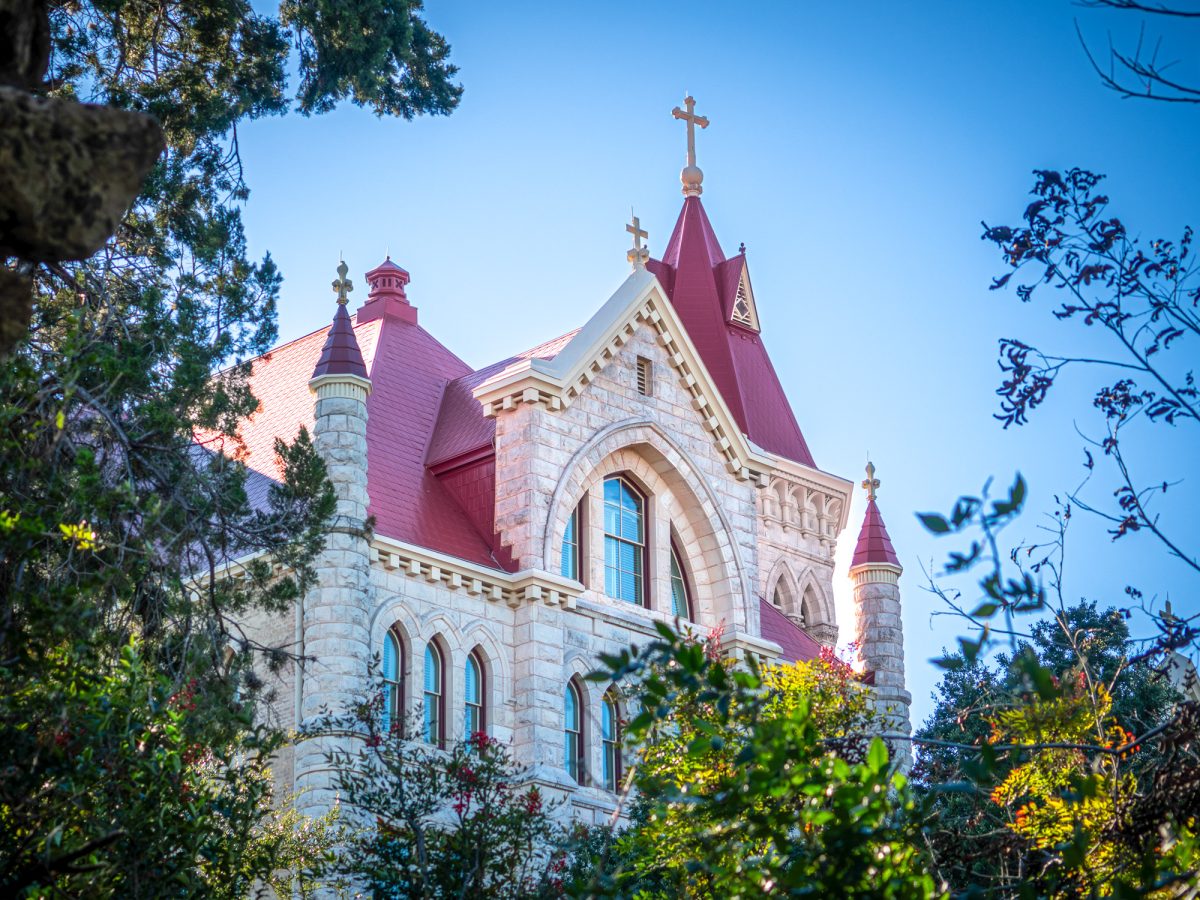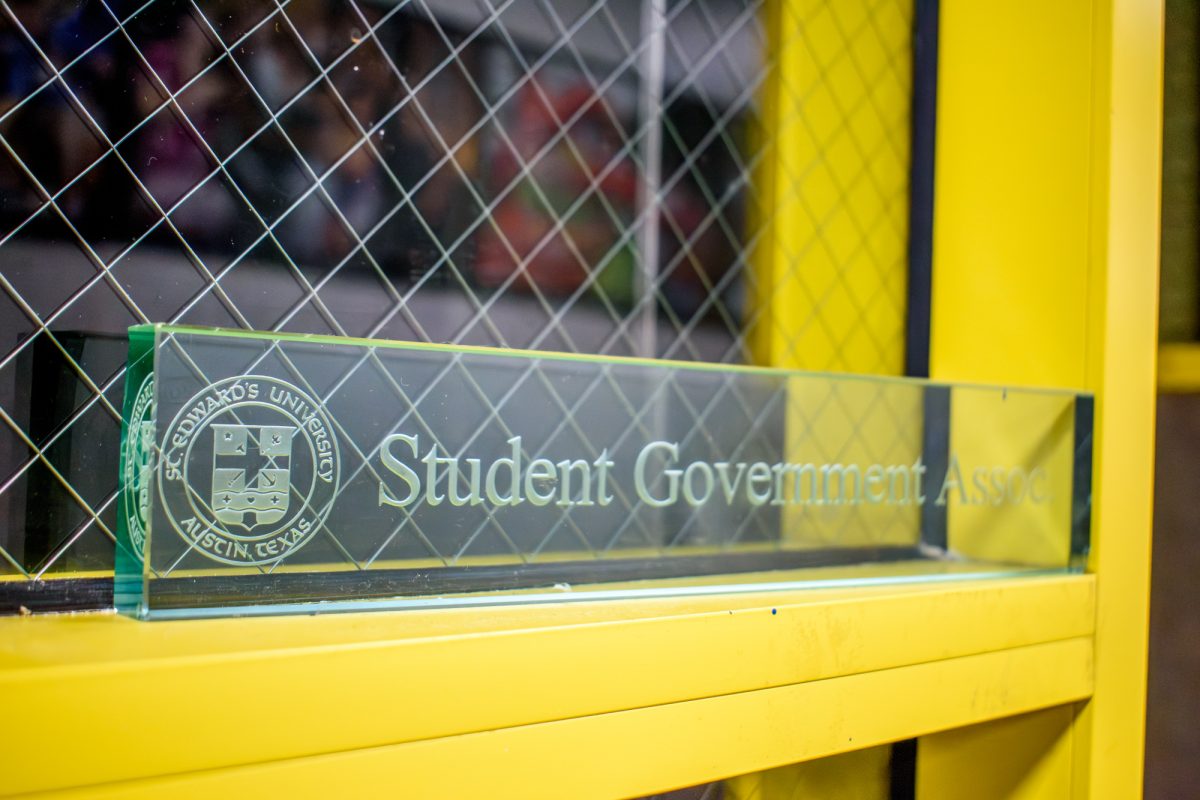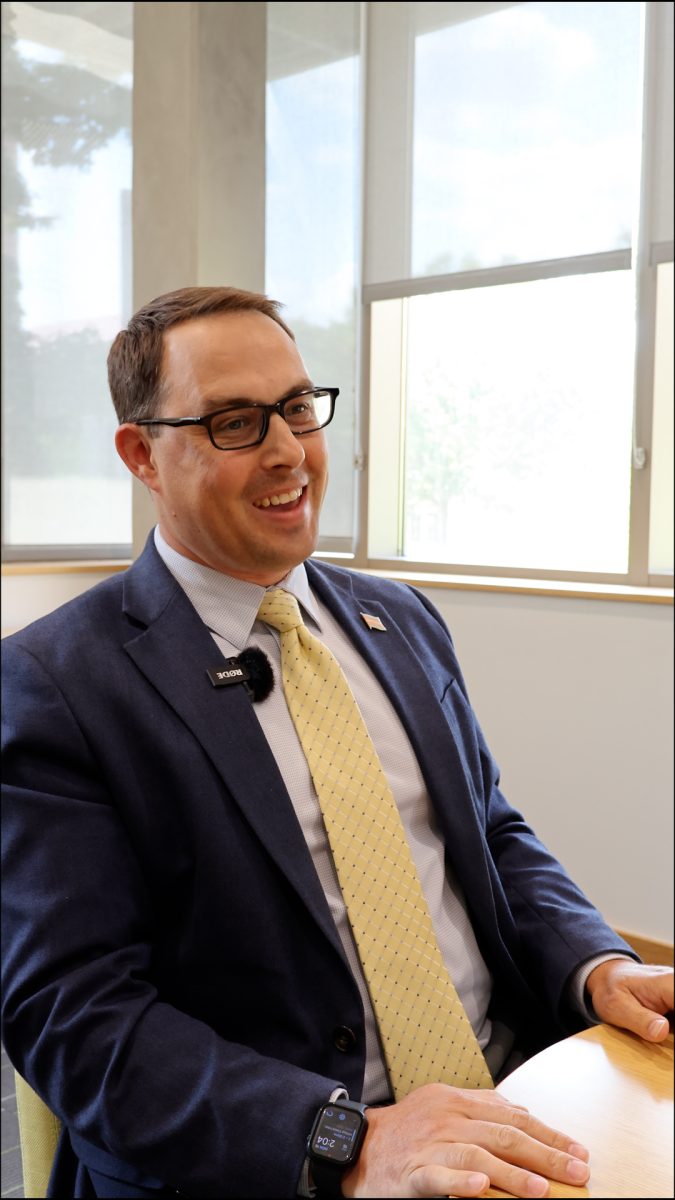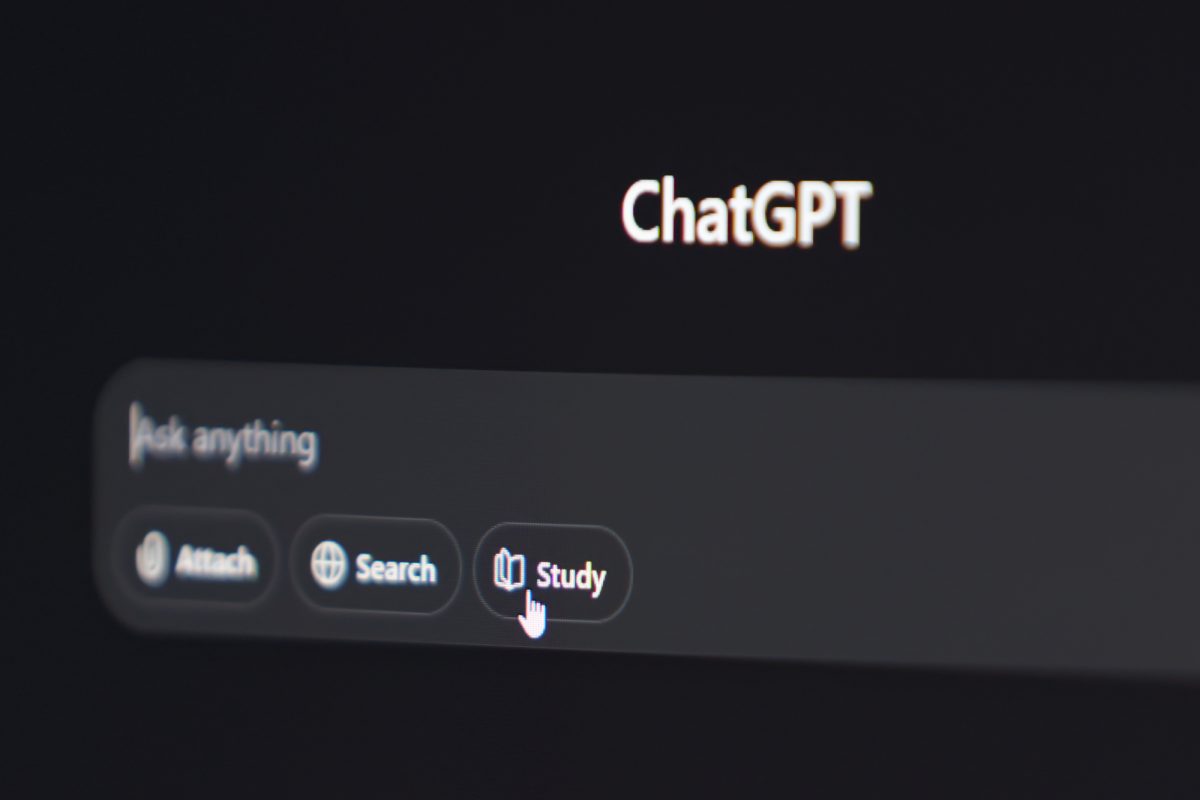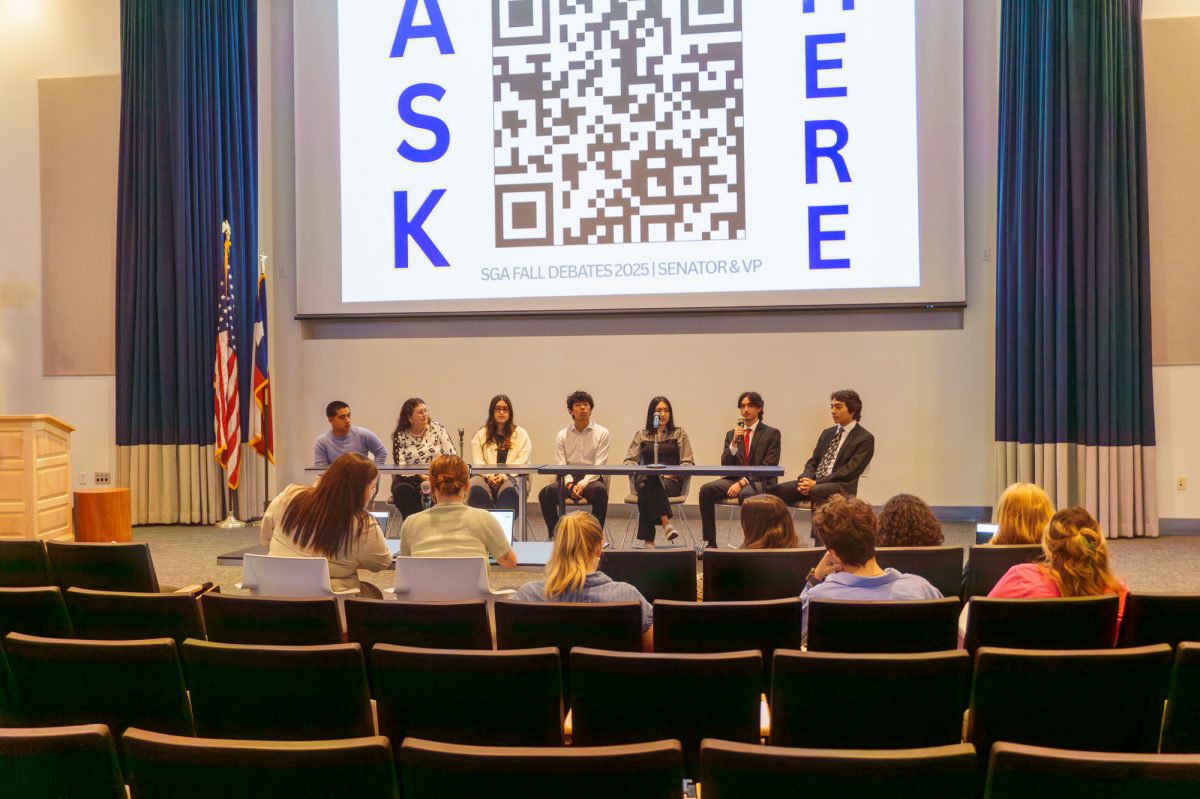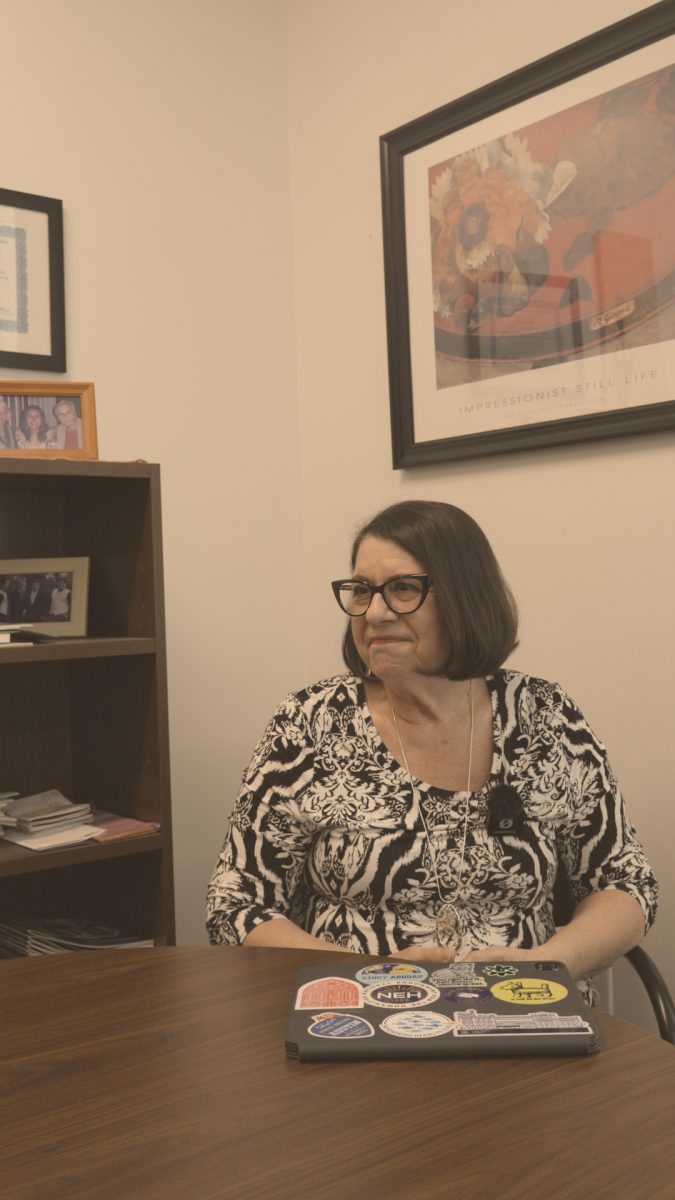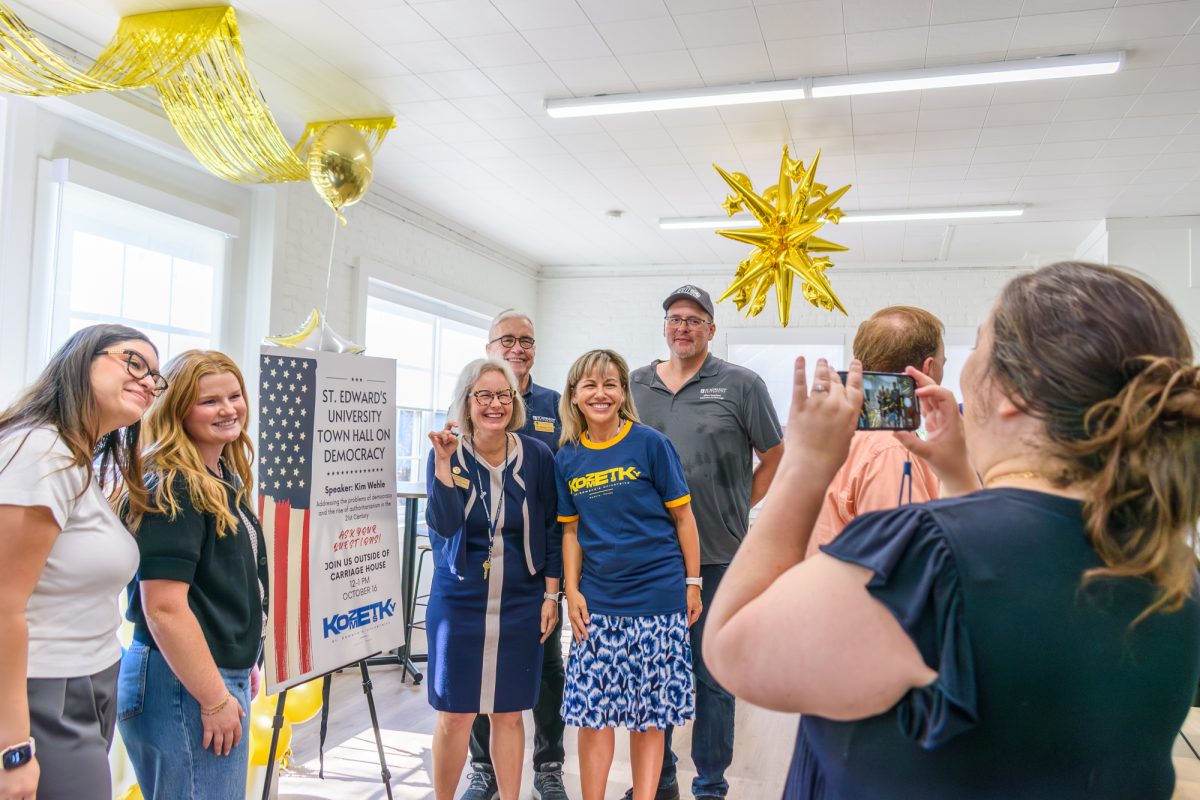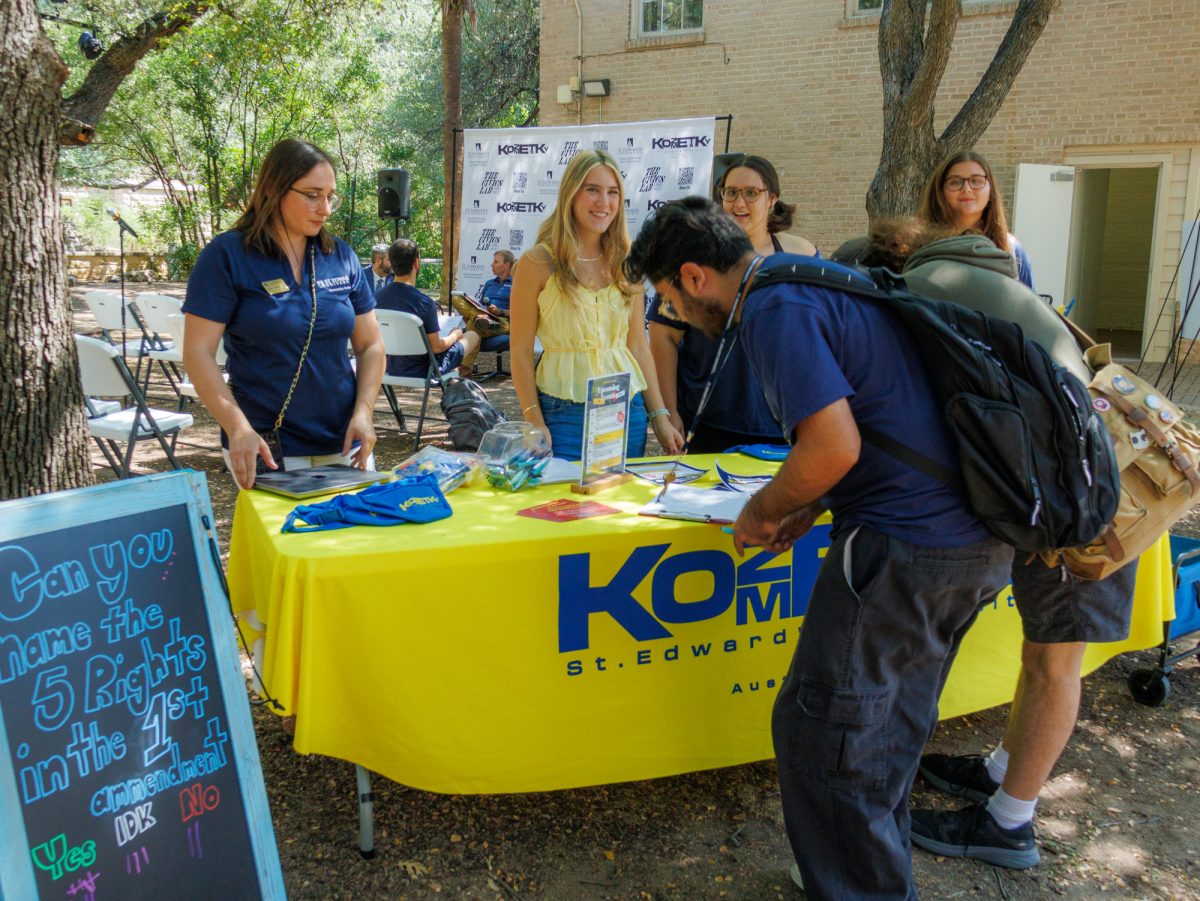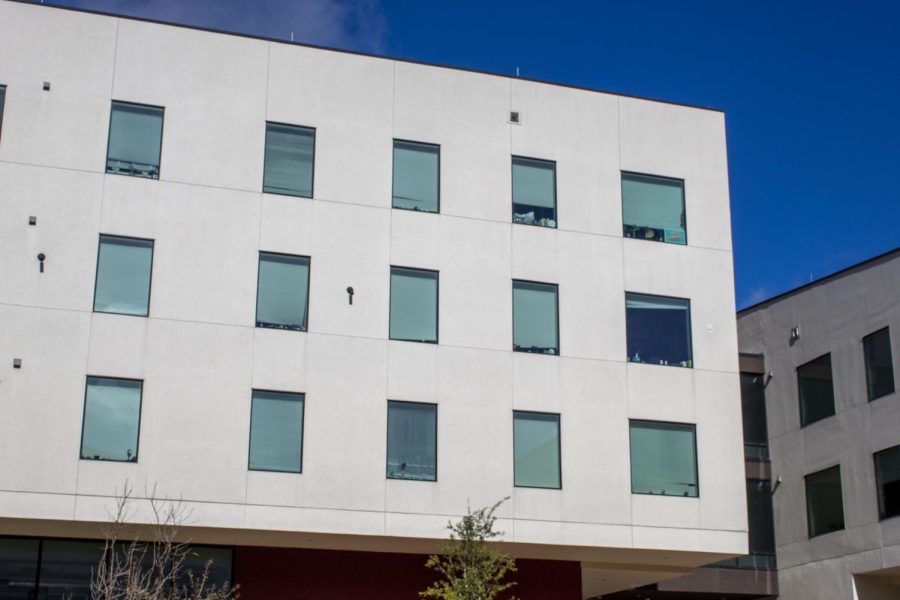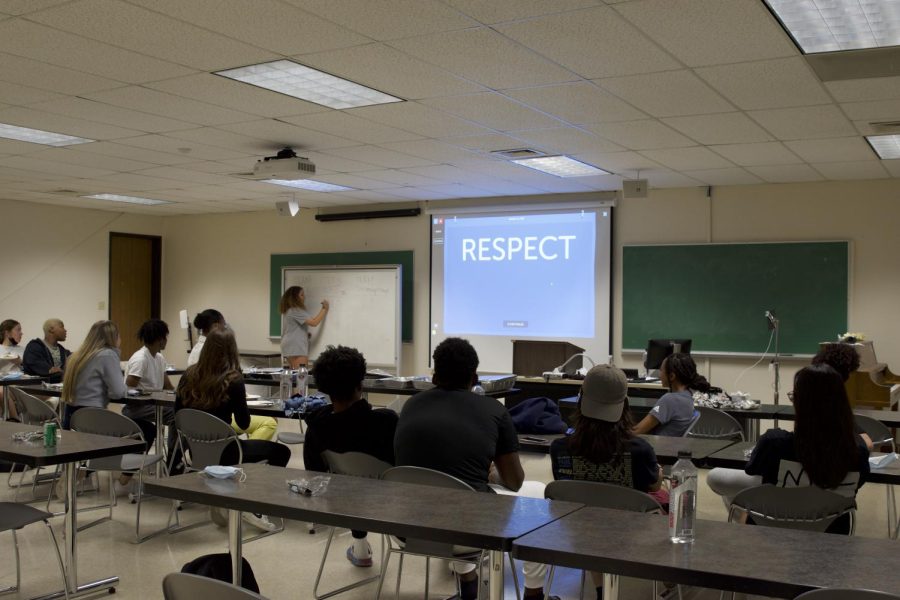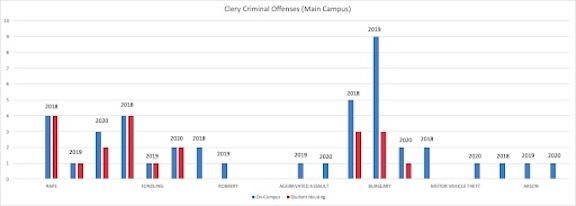The McNair Scholar Program at St. Edward’s University will continue operating through the 2025-2026 school year after the federal government reinstated funding in September, ending months of uncertainty for students on their way to pursuing doctoral degrees.
The program, which prepares first generation, low income and underrepresented undergraduate students for graduate school faced potential elimination as the current U.S. administration attempted to dismantle the Department of Education. Many McNair programs across the nation were facing delays in grant award notifications.
“The possibility of the program being defunded was a very heavy and stressful thing,” said Taylor Bratkovich, a senior behavioral neuroscience major and McNair scholar. “As excited and relieved we are to have not been defunded, we also have this momentum of wanting to make sure that doesn’t happen again because there is no guarantee that it won’t.”
University President Montserrat Fuentes emphasized the institution’s commitment to access and student success programs like McNair, during an interview with Hilltop Views last month.
“We are very proud that we continue with our McNair program during this fiscal year,” Fuentes said. “McNair’s focus is primarily on preparing the students for graduate school, for research, for success.”
The federal TRIO program is named after Ronald E. McNair, a physicist and the second African American astronaut who died in the 1986 Challenger explosion. The program provides research opportunities, mentorship and overall academic support, giving students an opportunity to expand their current studies and gain skills necessary to succeed in graduate school.
“McNair’s main focus is research, but more than anything it is an opportunity for low income first generation students to get hands-on research experience and funding that may not be accessible,” Bratkovich said.
St. Edward’s has offered the McNair program since 2003 and has helped over 300 students pursue graduate degrees. The program allows undergraduates to design their own research projects and choose mentors suited to their academic goals.
“The cool thing about McNair is the research is your project,” Bratkovich said. “With McNair, you can choose your mentor who is really suited to your needs and goals and create whatever project that interests you the most from start to finish, which is hard to do as an undergraduate.”
The program covers application fees, exam costs, books and research expenses that often prevent low-income students from pursuing doctoral studies.
“With all of the application and exam fees and books, it genuinely feels like a blessing to be a part of the program because when you don’t have the money, you don’t have the ability to do all of these things,” said Stephany Merchan, a senior psychology major and McNair scholar. “If you can’t do your research here on campus, McNair still supports you to find a place where you can conduct research.”
Scholars also attend national conferences to present their research and network with peers from other universities. Bratkovich and other scholars traveled to Baltimore this year for a conference.
“A few other scholars and I were able to go to Baltimore for a conference and present our research and also we just had a blast getting to meet other scholars and learn more about and gain more confidence in applying to grad school,” Bratkovich said.
Andrea Holgado, the McNair program director, said the program builds a community across all campus majors.
“The McNair program is campus wide and open to all majors, and builds a community of students that want to do research,” said Holgado. “That’s the importance of McNair, not only the financial help, but what it brings students emotionally because you create a network of professionals of people who support you along the way. Even though we are a smaller program here on campus, we are making a strong impact on the students.”

